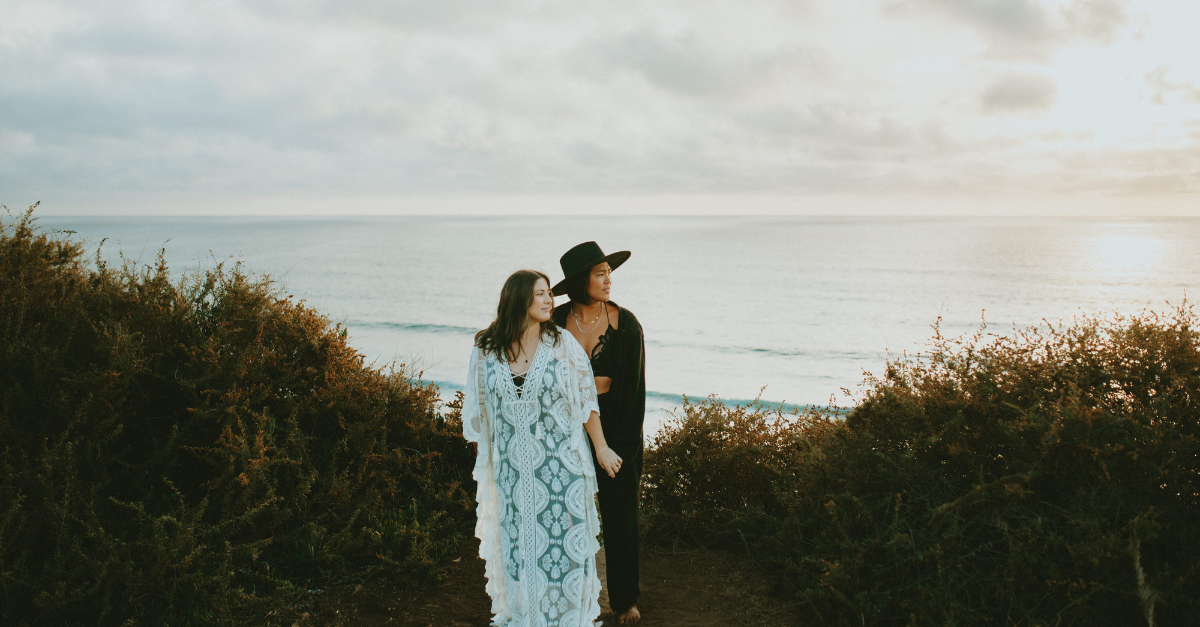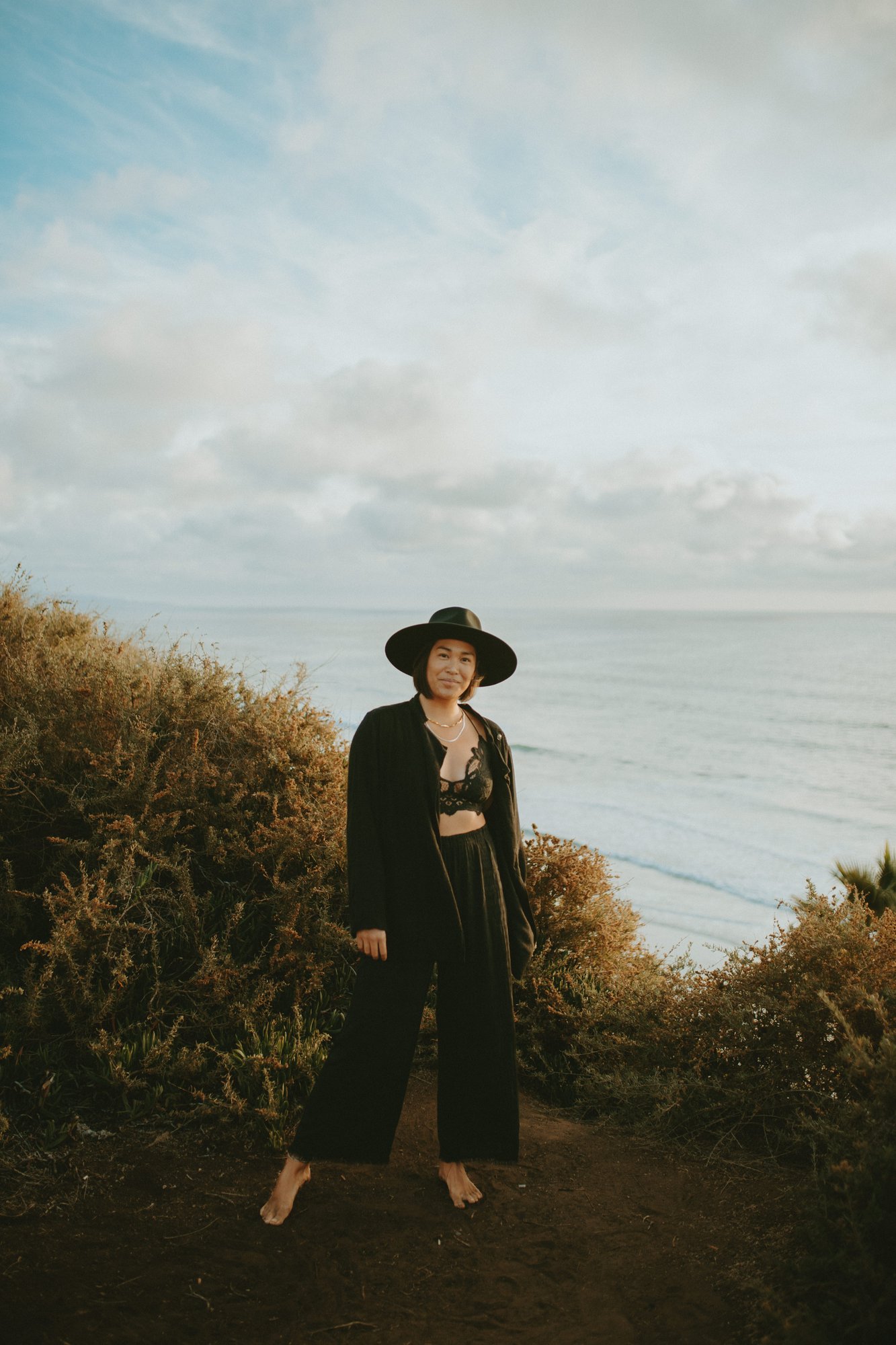Celebrating Black History
The celebration of Black History extends far beyond the month of February. There is daily opportunity to pay tribute to the resilience, profound...

Meet Chelsea and Tara, our friends from San Diego, CA, who have been together for 7 years (they’re currently engaged!). We sat down to talk about the intersection of LGBTQ+ and mental health in their lives.
Care Solace: The first question we have for you two is about a word: belonging. Kids in general struggle to find a place where they feel they belong, especially if they are “different.” Did either one of you find it exceptionally difficult to feel a sense of belonging as a kid?
Chelsea: My first memory about not quite belonging is when I was in kindergarten. A girl kissed my finger, and I immediately got butterflies in my stomach. I came home and told my mom that I was going to marry a girl. And let’s just say she made it clear that it was wrong to like girls. From then on, I knew I was different, but I didn't know how I was different. I blocked that kindergarten memory out for a while and didn't remember it until later, when I was really struggling in middle school. I wasn't gay yet. But I was depressed.
CS: Tara, what was your situation like? Did you always feel you had a place of belonging?
Tara: I grew up with a strong group of friends. And by the time I came out at age 25, it wasn't a big deal. I had a friend that said, “Finally! Finally, it all makes sense.” But I never felt like I didn't belong or like I was an outcast.
CS: What do you think made it harder for you to feel like you belonged, Chelsea?
Chelsea: I think it was harder for me because I'm a first-generation American. My parents immigrated here from the Philippines, and I grew up with the expectation that I would assimilate as much as possible into American culture. I didn't learn my own language growing up because my mom didn't want us to get made fun of for having an accent or not speaking English. I know now that assimilation motivated a lot of what I experienced at home. My parents wanted us to fit in.
- Chelsea

CS: Tara, are your parents generally a little bit more relaxed, open, permissive?
Tara: Totally. When I came out to my parents, my dad said, “Cool. I get it. I grew up in the 70’s.” And my mom is my biggest ally. She's the mom on the side of the road at the LGBTQ+ rally who is giving out free mom hugs.
Chelsea: I came out to my parents on the way to a soccer tournament in high school. I said, “You know that girl who comes over a lot?” And my dad jumped in and said, “ Is she your girlfriend?” When I confirmed it, he was actually really supportive. But when I turned to my mom, she was quiet. It took her a while. We didn’t talk for a few months.
CS: Your mom wanted you to fit in — and you weren’t following the plan! Her reaction is a reminder that you don't get to decide how others feel when you come out. You have to allow them their feelings, right? So at that point in the car, you decided to be yourself — no matter what she would think, feel, or do. That was an act of bravery and insistence on authenticity.
Chelsea: But then we brushed it under the rug for years. I had girlfriends and introduced them to my parents. But it was clear that she thought it was a phase and was still hoping I would marry a guy. But as they say, time heals all wounds. At some point she just realized that I wasn’t going to change.
Tara: Chelsea has done an incredible job working on her personal development. She’s accepted her parents for who they are. She has so much respect for them. Regardless of how they might feel about her, she treats them with kindness and respect.
Chelsea: Like you said earlier, you can't control how people are going to feel when you come out. But I know I can manage my emotions about how people treat me. It was hard for my mom to love me and accept me. I found gratitude within myself for both of my parents, for where they came from, for how they became who they became. It started to become really easy for me to keep loving my mom. I decided not to care if she accepted me or not. Because I accepted her. I loved her. And I forgave her for not knowing how to handle those situations. Now my relationship with my mom is better than ever.
Tara: Her mom is at a place of acceptance. She said, “I have the perfect family. I have a son, a daughter, and someone who's in between” (that’s Chelsea!).
Chelsea: Here’s the thing. The LGBTQ+ community has to get our mental health in order to keep the relationships we have. We can't rely on people to be the bigger person because we're the person who's coming in different. When we can get our own mental health under control, it doesn't matter who accepts us or who doesn't accept us. We’ll have love to give, so their resistance is met with a bunch of love. It's up to us, which seems kind of unfortunate. But it's unfortunate and fortunate. I went through all this adversity, and now I have a kind of love and gratitude for my parents that many people can’t understand.
CS: A lot of people could have experienced what you have, Chelsea, and been really resentful. It takes a lot of resilience to navigate something like that.
Chelsea: I think it’s about self-love. Once you can find self-love, you can start seeing others have an entire story, and you can recognize there are chapters you haven't read.
CS: Let’s talk about mental health even more directly. Chelsea, let’s start with you. Did you see a therapist when you were younger?
Chelsea: From eighth grade all the way up to college, I was chronically depressed. When I did finally see a therapist, she suggested testing me for ADHD. I was given a prescription, but I just crumpled it up and threw it away. I didn’t want to take pills to solve my problems. I got super lucky when I told one of my friends about my depression; she recommended a Vipassana 10-day meditation retreat. It was free! I went, and it changed everything for me. Now when I experience depression, I find the best way to help myself is by serving others. I do a lot of volunteer work.
CS: Tara, what’s your mental health journey been like?
Tara: I've struggled with mental health issues since I was 14. I started self harming. I had an eating disorder. Alcohol was my drug of choice. I would see a therapist for a few sessions, decide they were a bad fit, and stop going. Then months later, I didn't want to live anymore, and I’d look for another therapist. It was a vicious cycle. Meeting Chelsea totally changed my life. I watched her on this journey of becoming a better version of herself. When she suggested things I could do to help myself, I got annoyed. I wanted her to leave me alone.
CS: Depression can have a powerful hold.
Tara: 100%. I’d think, “I don't want to live like this anymore. I’ve got to do something!” But I also didn’t want to get up off the couch. Eventually, though, I came to a breaking point. And Chelsea couldn't keep holding us both up.
CS: Chelsea is pretty strong. She could do it for a while.
Tara: She’d say, “You don’t love yourself, so I can love you enough for the both of us.” But that wasn’t sustainable for either of us. So I had to participate and do good things for myself. I started meditating, running, reading, journaling — things that I didn’t have the will to do before. But the biggest thing was going alcohol free, which I've been for 10 months now. That changed everything. I hadn't gone a week without alcohol since I was 14. And I'm 34 now.
- Tara

CS: Chelsea, you must have always seen what was possible for Tara.
Chelsea: We saw the good in each other, and we wanted to work our way out of depression together. It just took Tara a little longer, which is totally fine. I was grateful that she had her breakthrough and did the things that she needed to do to get sober. One thing that we hold on to is “love yourself first.” Only then can we come together as a partnership. She's not my other half or my better half. She's a full, actualized person that loves herself — and so am I.
CS: At this point, what are you most proud of?
Chelsea: My first big flex is learning to love myself. My second biggest flex is healing the relationship with my parents. And my third biggest flex is the relationship Tara and I have created.
Tara: I’m proud that I get it: everything's a choice. Chelsea would say that to me in the past, and I just couldn't wrap my depressed mind around the truth of it. The most important choice is me choosing myself. There's no other way. When I choose myself, the leaves are greener, the sky is bluer. I will continue to choose myself every day,
- Chelsea

Photography by Kaite Iredale
.png)
The celebration of Black History extends far beyond the month of February. There is daily opportunity to pay tribute to the resilience, profound...
.png)
When someone you love dearly dies by suicide, you’ll experience a range of emotions as you grieve. Some moments you may feel angry; in other moments,...
.png)
How do men in your life answer the question, "How are you?" If they answer with a simple, “fine,” you should ask again. According to the Surgeon...